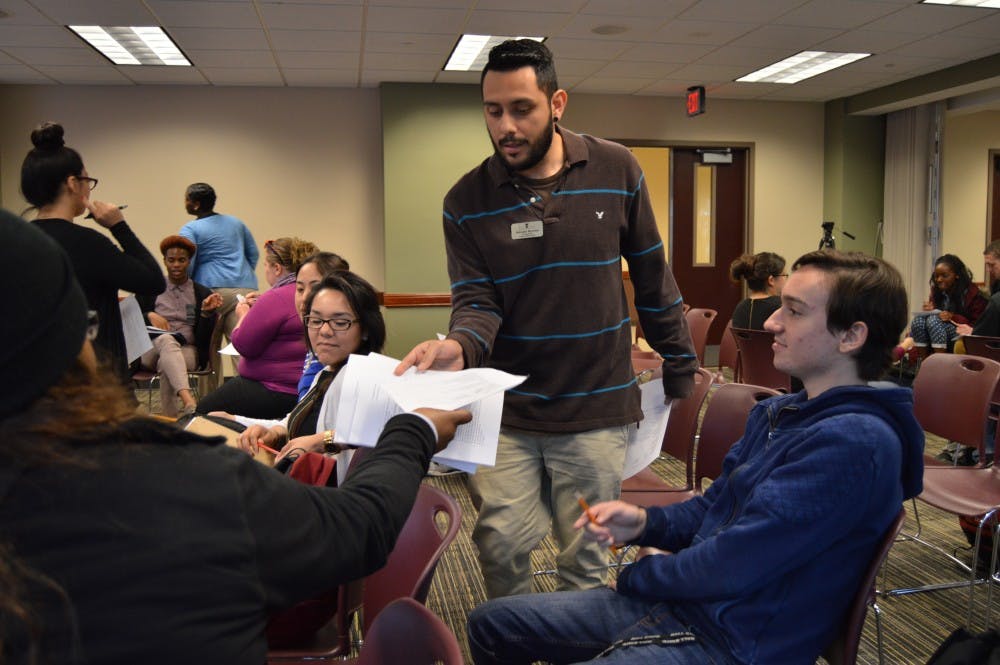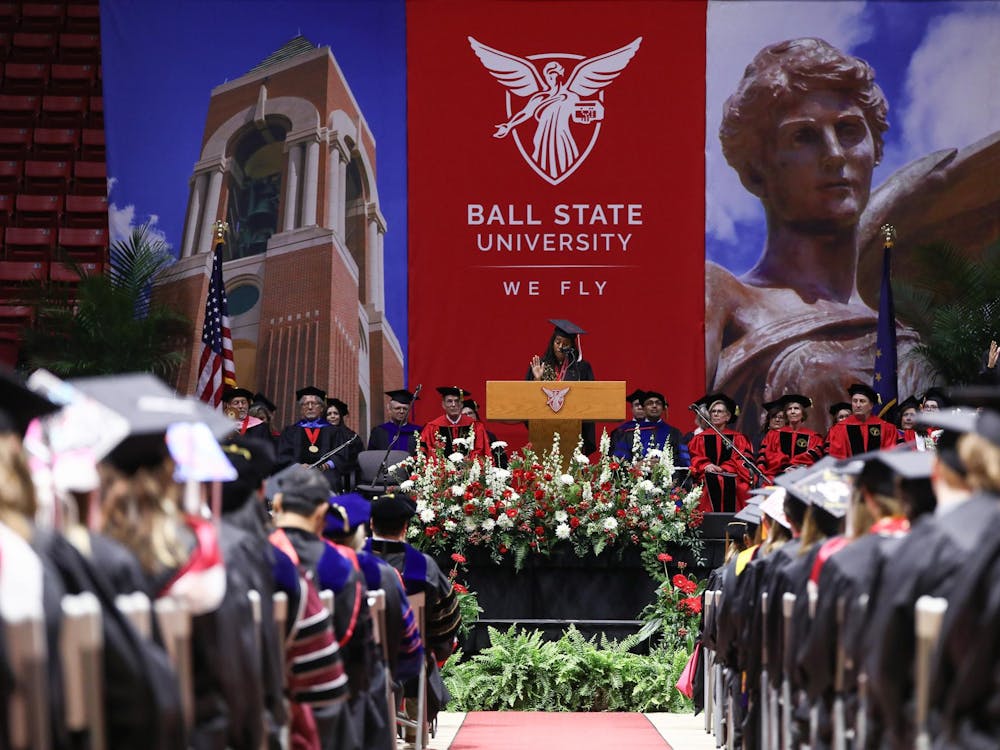From Oct. 1, 2009, through Aug. 31, 2015, more than 4,495,00 naturalization tests were administered worldwide, according to the U.S. Citizenship and Immigration Services.
To show students what it takes to become a naturalized citizen of the United States, the Latino Student Union hosted their annual Citizen’s Workshop.
The Citizen’s Workshop took place March 23 and began with LSU members discussing how to apply for citizenship, and the 10 steps to naturalization. To end, a panel discussion was held.
The first two steps in the process are determining if one is already a U.S. citizen and then determining if one is eligible to become a citizen. Next, one must prepare a Form N-400, which is the actual application or test for naturalization.
Kirsis Dipre, vice president of the Latino Student Union, was born in the Dominican Republic and completed Form N-400 to become a citizen when she was 18. She said preparing for the test is much harder than some may think.
“To study, you are given a book with 100 questions, and you are expected to know the answers to all of them, but you don’t know what 10 questions are going to be asked,” Dipre said. “In order to pass, you must get at least six questions correct. It puts people under so much pressure.”
The test features questions about the U.S. system of government and history to confirm the taker has basic knowledge of these subjects, Dipre said.
After completion, the Form N-400 is submitted to United States Citizen and Immigration Services. At this point, some may have to go to a biometrics appointment, which is questions one's background, place and length of residency and moral character.
After the biometrics appointment, one has to go through an interview with USCIS. At that point, the person will receive a decision from USCIS on the Form N-400, application for naturalization.
The write notice of decision could either be granted, continued or denied.
As of August 2015, the national pass rate was 91 percent, according to the USCIS.
If the decision is granted, the person would then receive a notice to take the "Oath of Allegiance," which is the final step to becoming a legal U.S. citizen.
After the naturalization process is complete, the last step is to understand U.S. citizenship. The USCIS provides a list of some of the most important things to know for American citizens.
Participants at LSU's Citizen's Workshop put their knowledge to the test by taking a practice version of the Form N-400 with 20 questions, 12 had to be correct to pass.
Less than half of participants passed.
Because so many failed, many participants were surprised by the overall experience.
"A lot of people did not understand and know the answers, which made them mad because these questions are about American history, and natural born citizens can’t even answer these questions correctly themselves," said Da’Prielle Fuller, a sophomore and criminal justice major. "A lot of people think it is just a test and easy to get in when in reality it's not.”
The overall goal of the Citizen Workshop was to educate students on what everyone has to go through in order to become a citizen, which some people may take for granted.
“When people think of immigration, they think of something negative," Fuller said. "People just trying to come to the U.S. to ‘take from us’ when that is not true. We have these people who are coming not to take from us but to actually grow and build their families.
"We always push this idea of the 'American Dream,' so we shouldn’t be surprised when people want to come and live out their dreams in America.”
Do you have what it takes to pass the naturalization test?





